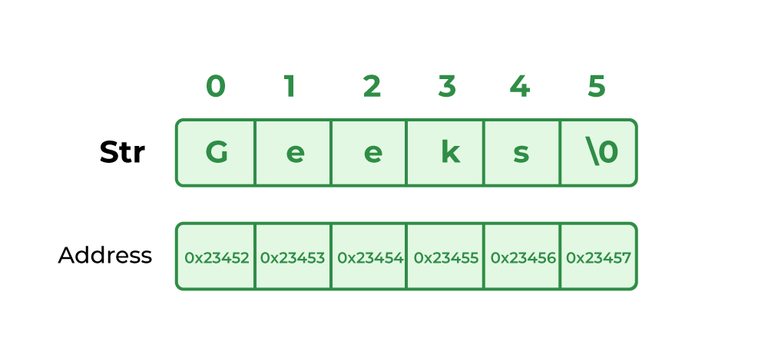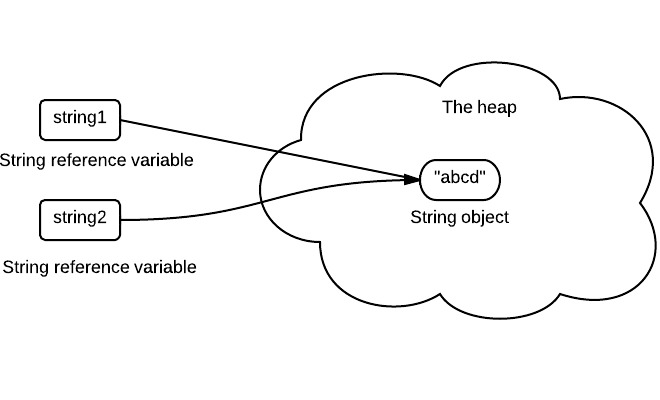What Is Immutable Strings and How It Works
In the realm of programming, comprehending the concept of immutable strings is vital for creating durable and safe applications. Unalterable strings describe strings that can not be changed after they are produced, making sure information integrity and predictability within the code. This basic principle plays an important function in various shows languages and uses an one-of-a-kind technique to managing information. By checking out the details of how immutable strings work, one can uncover a globe of benefits and possibilities that can raise the top quality and efficiency of software application growth.
The Basics of Immutable Strings
Unalterable strings, as a basic concept in programs, are character sequences that can not be transformed as soon as they are created. This implies that when a string is designated a worth, that worth can not be altered. In languages like Python and Java, strings are immutable things, resulting in various implications in regards to memory monitoring and information stability.
One of the essential advantages of immutable strings is that they offer a sense of protection in information control. Given that the content of an immutable string can not be modified, it makes certain that the initial data remains intact, minimizing the risk of unintended modifications throughout program execution (Why are strings immutable in Java?). This property also streamlines debugging procedures, as programmers can rely on that as soon as a string is defined, its value will not be accidentally modified
Moreover, immutable strings help with efficient memory use. When a new string is created based on an existing one, as opposed to changing the original string, the brand-new value is stored independently. This technique improves performance by lowering memory fragmentation and simplifying memory allocation processes. On the whole, comprehending the essentials of immutable strings is crucial for mastering programs ideas and maximizing code efficiency.
Advantages of Unalterable Strings
Building upon the safety and security and efficiency advantages of immutable strings, their benefits reach enhancing code dependability and streamlining concurrent shows tasks. By being unalterable, strings can not be changed after creation, which eliminates the danger of unplanned changes in the information they keep. This inherent immutability makes sure that once a string is developed, its worth remains continuous throughout the program's implementation, lowering the chances of bugs triggered by unexpected modifications.
Additionally, immutable strings contribute to code dependability by making it simpler to reason regarding the state of a program. Since strings can not be changed, developers can trust that a string will certainly always hold the very same value, simplifying debugging and upkeep initiatives. This predictability results in more reliable and steady codebases.

Implementation in Programming Languages
Within various shows languages, the incorporation of unalterable strings is a basic element that influences how data is taken care of and manipulated within code frameworks. The implementation of immutable strings varies throughout various shows languages, with each language offering its own systems to sustain this idea.

On the other hand, languages like C and C++ do not have integrated support for unalterable strings. Designers in these languages should by hand execute immutability by imposing rules within their code to avoid straight adjustments to string objects.
Ideal Practices for Working With Unalterable Strings
When taking care of unalterable strings in programming languages like Java and Python, sticking to best methods ensures safe and secure and effective information manipulation. One of the vital finest practices is to utilize StringBuilder or StringBuffer rather of straight controling strings, specifically when taking care of comprehensive concatenation procedures. These classes give mutable choices for string adjustment, assisting to prevent unneeded memory allowances and improving performance.
Another finest technique is to use string interpolation or formatting operates supplied by the language rather of hands-on concatenation. This not just improves readability however likewise aids in avoiding usual challenges such as unintentional string alterations. In addition, when dealing with delicate data such as passwords or Learn More Here API keys, it is important to stay clear of storing them as simple message in unalterable strings. Utilizing safe storage systems like char varieties or specialized collections for handling sensitive information helps reduce security risks connected with immutable strings.
Real-world Applications and Instances
Discovering functional executions of immutable strings in numerous sectors exposes their significant impact on information honesty and system integrity. In the health care field, immutable strings play a vital function in making certain the safety and confidentiality of individual data. By avoiding unauthorized alterations to sensitive details such as clinical documents and prescriptions, unalterable strings aid preserve conformity with strict personal privacy policies like HIPAA.
Financial establishments also take advantage of the immutable nature of strings to improve the protection of customer information and deal records. Unalterable strings aid avoid scams and unapproved modifications to financial details, offering a durable defense versus cyber dangers and ensuring the trust and confidence of customers.

Verdict
Best practices for working with immutable strings consist of staying clear of direct modifications and using approaches that return new string objects. Real-world applications of unalterable strings include data security, caching, and string adjustment tasks.
Immutable strings refer to strings that can not be modified after they are produced, guaranteeing data honesty and predictability within the code. When a new string is produced based on an existing one, instead than modifying the original string, the brand-new value is saved individually.In languages like Java and Python, strings are immutable by default, implying that as soon as a string object is click to investigate developed, its worth can not be transformed - Why are strings immutable in Java?. Finest techniques for functioning with immutable strings consist of staying clear of direct adjustments and making use of methods that return new string items. Real-world applications of unalterable strings consist of data encryption, special info caching, and string manipulation tasks